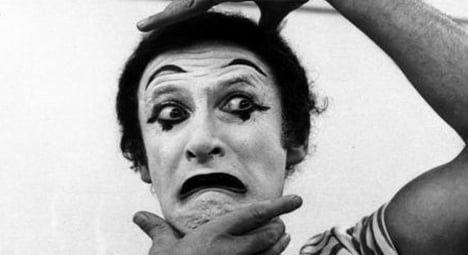Many Anglos living in France, especially those who have taught English, know all about the shaky confidence levels of the French when it comes to speaking the language of Shakespeare.
However, two new reports have shed light on how just how low their self-esteem around "l'Anglais" has tumbled.
According to data agency Eurostat, the French are the second most insecure in Europe after Italy about their levels of English. Unsurprisingly perhaps, the Swedes topped the confidence table.
Eurostat carried out their survey to mark European Language Day, which revealed that when asked whether their level of English was "proficient", “good” or just “fair”, only 13 percent of French respondents believed they were proficient.
This downbeat self-appraisal was of no surprise to David Stenning, director of Interface Business Languages in Paris.
“The French are insecure about their English ability but I've seen it across all of southern Europe. It’s possibly a Latin thing.”
"Most Anglos, when they speak to French people, are happy to accept mistakes, but the French tend to be down on themselves and lacking in confidence. Really they just need to get over the initial hurdle and get on with it,” Stenning told The Local on Thursday.
Eurostat’s table of insecurity was backed up by another recent survey carried out in France by “1to1English”, which revealed that those in management positions in France have a poor grasp of English.
The survey showed that only 16 percent of managers, known as “cadres” in French, are at ease speaking English.
“There are clearly differences between generations. The younger generations are certainly better at speaking English and many managers and middle managers will be in their 40s, 50s and 60s. So that can play a role,” Stenning said.
And how can we explain the French gloominess towards their English language abilities? Well it’s all down to their schooling, believes Stenning.
“The French school system is built around negativity. There’s lots of telling pupils off and putting them down and in the end they come out of it believing they are bad at languages,” he said. “A lot of French people say that themselves.
“Part of our job is to help them see themselves in a better light,” he said.
Another theory that has been put forward in the past is that many French people still haven’t accepted that their own language has lost its influence at the expense of English.
Eurostat's data showed the dominance of English with a whopping 94 percent of upper secondary school students in the European Union choosing English as their second language, with French a distant second at 23 percent, and German at 21 percent.
And there are even those who believe France would be a happier place all-round if the French accepted the hegemony of English and got on with improving their language skills.
Scientist Claudia Senik told The Local earlier this year the French would be less miserable if they spoke better English.
However one telling stastitic, most noticable by its absence is how well people in the UK view their own foreign language proficiency. Eurostat said the data was not available but did not explain why. Perhaps the answer is obvious.
Don't miss stories like this – join us on Facebook and Twitter



 Please whitelist us to continue reading.
Please whitelist us to continue reading.
Member comments